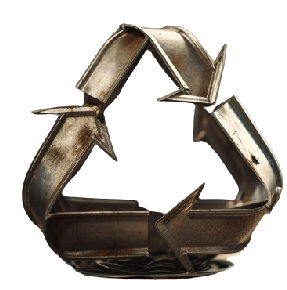Overview
The metal industry is undergoing a significant transformation, driven by the push towards sustainability and the efficient use of resources. At the forefront of this change is the practice of metal recycling, a process that conserves valuable resources and minimizes the environmental footprint associated with metal production. Endeavor Recyclers stands as a leader in this sustainable shift, offering comprehensive services in metal recycling that span the collection, sorting, processing, and repurposing of ferrous and non-ferrous metals. These efforts are vital in a world where metals are ubiquitous, serving as the backbone of industries from construction to electronics. We mitigate the resource-intensive demands of metal extraction and processing through recycling, taking a crucial step toward sustainable development. Our holistic strategy ensures a consistent supply of recyclable materials, leveraging advanced technologies to achieve high-quality metal recovery. This approach supports environmental conservation and promotes the use of recycled metals, reducing reliance on virgin resources and fostering a more sustainable, efficient, and responsible metal industry.
Technology
Technology plays a pivotal role in metal recycling in enhancing efficiency and sustainability. Endeavor Recyclers harnesses a suite of advanced technologies designed to optimize the recycling process for various metals. Our state-of-the-art sorting systems employ magnets, eddy currents, and other sophisticated methods for precise metal separation, ensuring each type is appropriately processed, and the quality of recycled products is maintained. Shredding technologies reduce metal scrap size, facilitating easier handling and processing, while our energy-efficient furnaces melt and purify metals with minimal environmental impact.

Additionally, our water treatment technologies prevent contamination of water resources, underscoring our commitment to environmental stewardship. By continuously investing in research and development, we refine our processes and stay at the forefront of the industry, making Endeavor Recyclers a leading force in sustainable metal recycling. Our technological advancements contribute to a greener future, showcasing our dedication to innovation and sustainable practices in the metal industry.
FAQs
Metal recycling involves collecting and processing metals to reuse them in new products. This process conserves natural resources, reduces energy consumption, and decreases greenhouse gas emissions compared to producing metals from virgin ore. Recycling metals also helps in minimizing environmental pollution by reducing the amount of waste sent to landfills. It's an essential component of sustainable development and the circular economy.
Recycling metals is crucial for environmental conservation and resource efficiency. It significantly reduces the need for raw material extraction, thereby preserving ecosystems and reducing energy and water use. Additionally, metal recycling is vital in lowering carbon emissions and combating climate change. It also supports economic growth by creating jobs in the recycling industry.
Almost all metals can be recycled, including ferrous metals like iron and steel and non-ferrous metals like aluminium, copper, lead, and nickel. Precious metals like gold and silver found in electronic waste are also recyclable. The recyclability of metals ensures that they can be reused multiple times without degrading their properties.
The metal recycling process starts with collecting and sorting metals based on type and quality. After sorting, metals are shredded to reduce their size and melted in high temperatures in furnaces. The molten metal is then purified and cooled to form new products. Advanced technology ensures the process is efficient and environmentally friendly.
Metal recycling has a significantly lower environmental impact than extracting and processing virgin metals. It conserves natural resources, reduces energy consumption by up to 95% for some metals, and decreases greenhouse gas emissions. Recycling also reduces the volume of waste in landfills and prevents pollution of air and water resources.
Yes, recycling metals can substantially reduce pollution. It prevents hazardous materials from ending up in landfills, where they can leach into the soil and water. Recycling also minimizes air pollution by reducing the need to mine and process new metals. By lowering overall waste and emissions, metal recycling contributes to cleaner air and water.
Technology plays a crucial role in enhancing the efficiency and effectiveness of metal recycling. Advanced sorting systems accurately separate different types of metals, while state-of-the-art shredding and melting technologies maximize material recovery. Technological innovations also ensure the recycling process is environmentally friendly, minimizing energy use and emissions.
Metal recycling stimulates economic growth by creating jobs in the recycling sector. It offers a cost-effective source of raw materials for industries, reducing manufacturing expenses. Recycling fosters innovation and investment in green technologies, opening new markets and opportunities. The sector contributes significantly to the gross domestic product (GDP) through sustainable practices.
The metal recycling industry faces challenges such as fluctuating market prices for recycled metals, contamination of scrap metal, and the need for advanced technology to process complex materials efficiently. Ensuring a consistent supply of recyclable materials and meeting stringent environmental regulations are also significant challenges. Overcoming these obstacles requires innovation and collaboration across sectors.
Individuals can contribute to metal recycling by adequately sorting and disposing of metal items in their household waste. Participating in local recycling programs and advocating for responsible waste management practices in their communities are also important. By choosing products made from recycled metals, consumers can drive demand for recycled materials, further encouraging sustainable practices.
